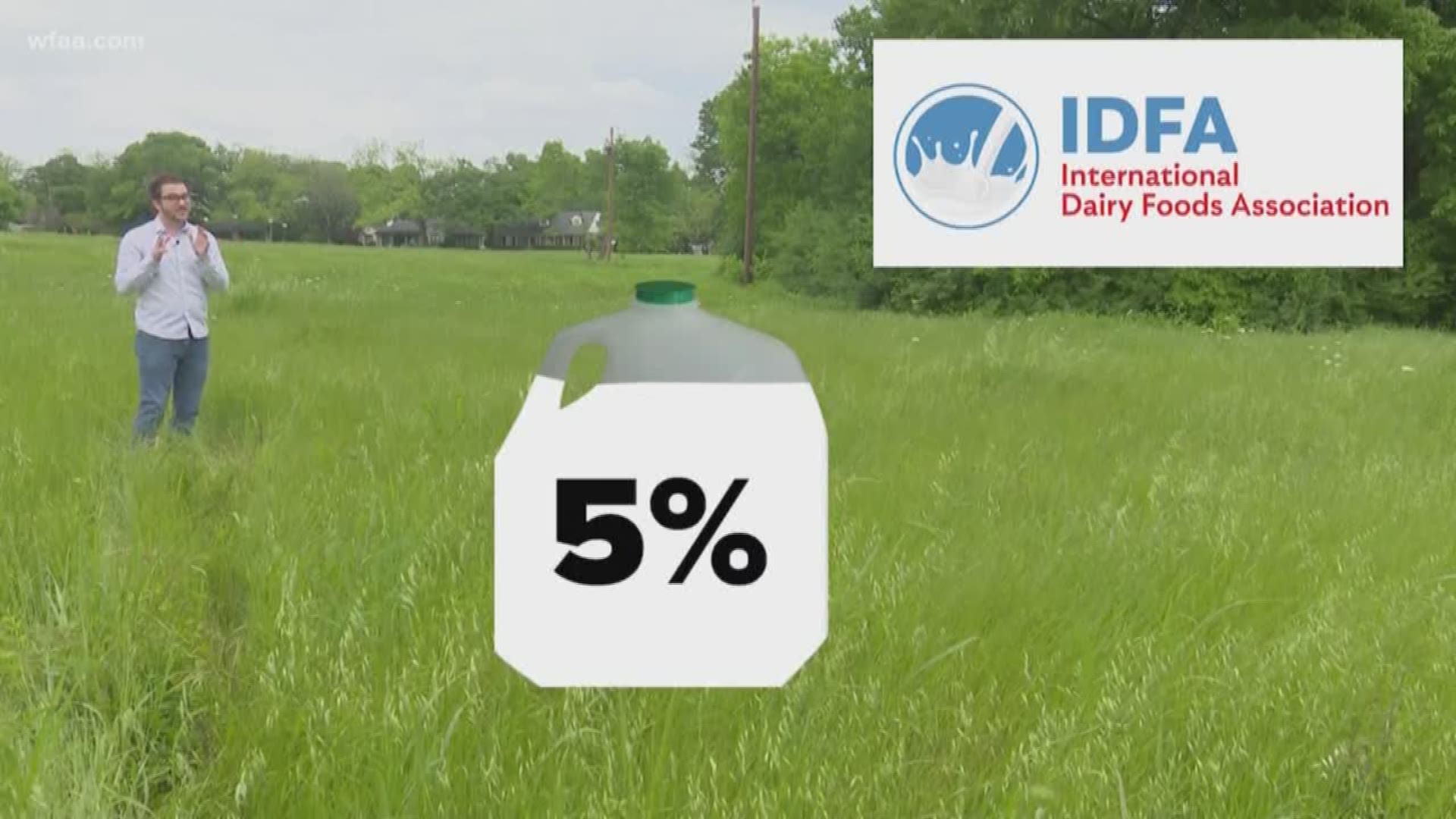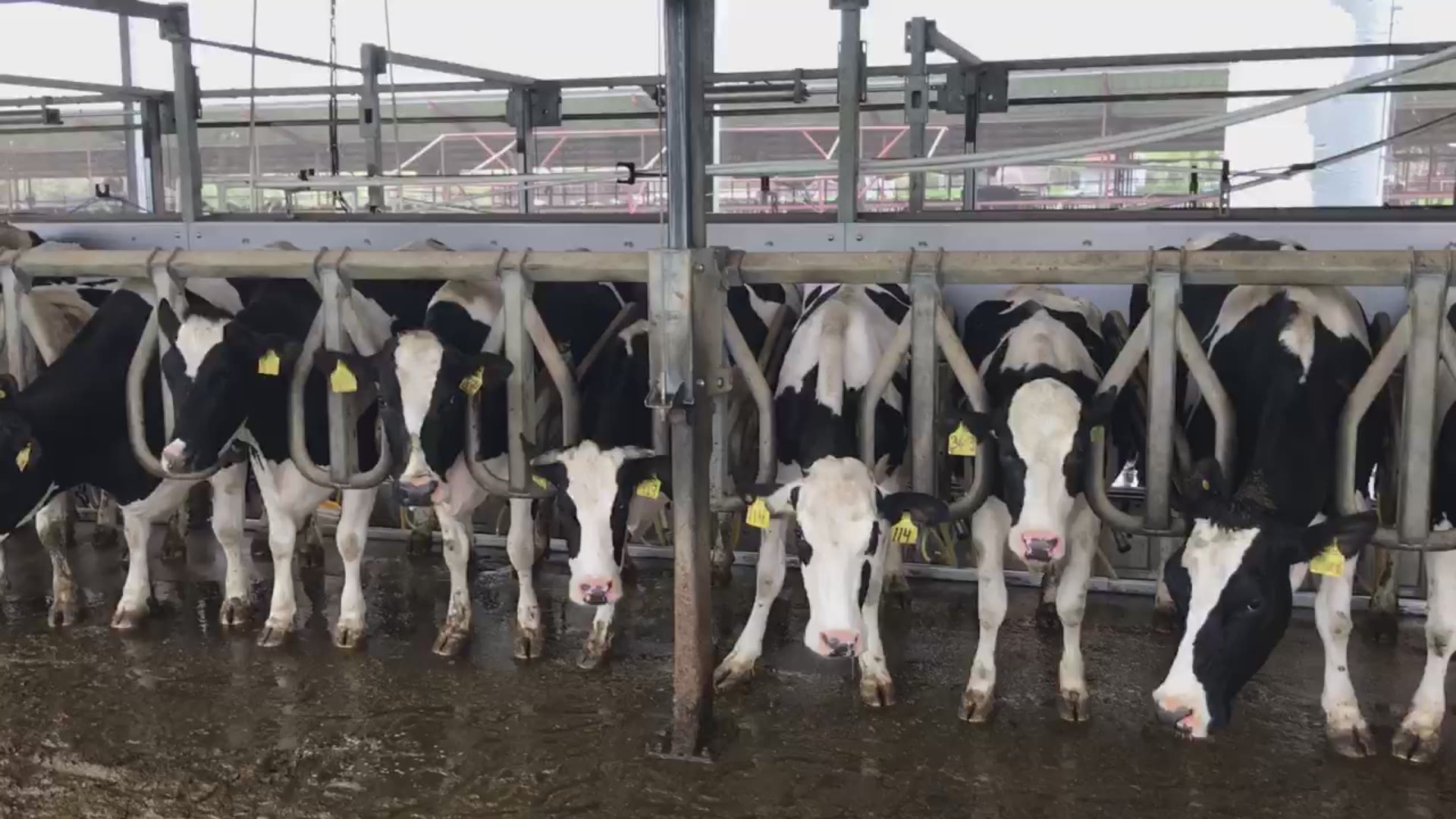Dairy farmers in Texas have been forced to flush away thousands of gallons of milk as demand shrinks while restaurants and schools are closed.
Farmer Arne van Dieden, who lives in Winnsboro, had to flush 6,000 gallons of raw milk in early April because milk companies wouldn’t process it for consumer use. Many farmers across the country have had to do the same since the coronavirus pandemic began.
“That was a kick in the gut,” van Dieden said. “I’m not born and raised like that. When I grew up, if you had food on your plate, you better finish it.”
He asked if he could donate it, but that wasn’t possible because processing plants are operating at capacity. Van Dieden says it’s a misconception that there is a short supply of milk following the rush on groceries. The current surplus of milk could result in lower milk prices paid to the farmer, which could be tough for their long-term viability.
Maiko Bouma is going through a similar experience. He also lives in Winnsboro, east of Dallas. He runs Bouma Dairy Farm. He has been in charge for the past 20 years.
“Generation to generation, my family has been in the dairy business,” Bouma said. “It’s always been in my heart.”
Bouma has a team of 10 people taking care of about 700 cows every day. Before the coronavirus pandemic hit, he sold about 6,000 gallons of raw milk a day to a co-op.
On April 2, his business partners told him they have “no orders for the milk.” He’s been forced to dump his product ever since then.
"It breaks your heart,” Bouma said. “How is it possible that we need to throw it away and store shelves are empty at the same time? It doesn't make sense at all."
This problem extends well beyond Winnsboro and even Texas. The International Dairy Foods Association tells the New York Times about 5% of the country’s entire milk supply is being dumped. That percentage could get even higher if the distribution isn’t improved in the next few months.
Dairy Farmers of America says farmers are dumping about 3.7 million gallons of milk each day.
Kristen Coady, vice president of corporate communications for Dairy Farmers of America, says they’re working to ensure farmers' milk continues to be picked up and are exploring food bank donation opportunities.
“Due to the excess milk and plants already operating at capacity, there is more milk right now than space available in processing plants,” Coady said in a statement, in part. “This, in combination with the perishable nature of our product, has resulted in a need to dispose of raw milk on farms, as a last resort.”
Van Dieden has been in business for 32 years and nothing like this has happened before. He says he is staying positive and knows that other businesses are also struggling.
“Farming and dairying is not really a job, it’s a way of life,” van Dieden said. “I don’t care about the money, I care about paying my bills and people get unfriendly if I can’t pay my bills.”



